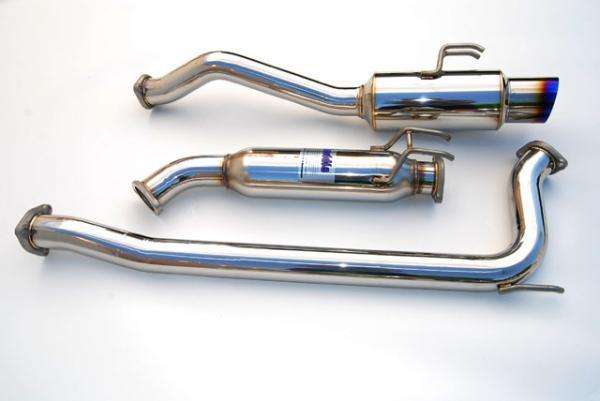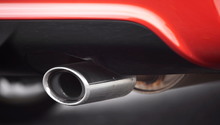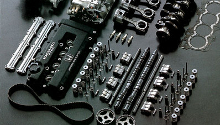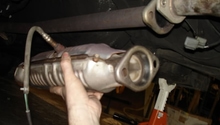Honda Civic: Exhaust Modifications
There are many different kinds of modifications you can do to your Civic's exhaust. This guide will help you choose the one that's right for you.
This article applies to the Honda Civic (1992-2000).
Outside of working on the engine, the best way to improve your Civic's performance is with an exhaust upgrade. Changing out the different components of your exhaust can increase exhaust flow, which by extension allows your engine to run faster. It should be noted that these upgrades alone won't net you a significant gain in horsepower, but they do work well with other modifications—such as a supercharger or intake upgrade—for even more air flow. Another consideration is that exhaust upgrades are cheaper than engine upgrades. Also, an average used supercharger or turbocharger kit can be picked up for around $1,000, which is roughly the same price as all of the exhaust components combined. The turbo will net much larger gains. If you think doing the exhaust first is the right course, then read on.
Exhaust Manifold

DIY Cost – $125-$350
Professional Cost – $300-$500
Skill Level – Easy to moderate; doesn't require as much work under the car, but it can be a hassle to pull it off the engine if it's never been removed before.
Commonly called headers, the exhaust manifold is the part that allows the exhaust gas to escape from your engine. The faster the exhaust gas can leave, the faster the new air can flow in to cause another reaction. There are two kinds of headers you'll typically hear about: 4-1 and 4-2-1. The difference is subtle, but it changes how your power is distributed. The 4-2-1 headers merge the four pipes into two pipes, and then into one pipe. These pipes tend to produce more power at the mid-rpm range, while sacrificing top end gains. The 4-1 headers merge all four pipes into one. These pipes tend to produce more power at the top end, while sacrificing the bottom. The advantage of a header upgrade is that it's relatively cheap, and can grant you an additional 10-15 horsepower. The disadvantage is that there is a slight risk of it cracking from the heat. Recommended brands are D.C. Sports, SMSP, HyTech, and Bisimoto. Recommended for its performance and low cost.
Catalytic Converter

DIY Cost – $110-$250
Professional Cost – $300-$450
Skill Level – Easy; you'll have to work under the car, but it's still easier to replace than the whole exhaust.
The cat converter, as it's called, is responsible for filtering the emissions in the exhaust. If you live in a state that requires emission testing, then you probably already know what it's all about. Running a car over the legal emissions level could lead to heavy fines. But because there are so many legal requirements, you don't have to worry so much about finding a brand name cat converter because they all have to be below the same threshold of emissions. Just be careful who you buy them from. Some people have gotten what they thought were cat converters, but were actually just test pipes. Purchasing a high flow cat converter will give you a minor increase to your top end, while keeping you at the legal emissions level. Recommended brands are Carsound, SMSP, Magnaflow, and Catco. Recommended for its legal requirement.
Cat-Back Exhaust

DIY Cost – $250-$500
Professional Cost – $500-$1,000
Skill Level – Easy to moderate; a cat-back exhaust is heavy, and difficult to put together.
This is the main part of the exhaust. It's called the cat-back exhaust because it consists of everything that comes after the cat converter. Like the cat converter, you won't see a huge change in performance, but it will increase your exhaust flow. It will help with your low end without making sacrifices. The biggest change you'll notice will be the sound as you drive, so it's highly recommended that you look online for sound clips of the exhaust before you buy it. Another consideration is the look of the exhaust. Some exhausts will stick out a bit, so you may want to swap out the exhaust tip later if it doesn't fit quite right. Recommended brands are Yonaka, Magnaflow, Thermal R&D, RS-R, GReddy, and Apexi. Recommended for its increase in exhaust flow.
Related Discussions
- How to Make Your Civic Faster - Honda-Tech.com
- Best Header for D16 - Honda-Tech.com
- Cat Converter from Dealership vs. Aftermarket - Honda-Tech.com
- High Flow Catalytic Converter - Honda-Tech.com
- Yonaka Cat-Back Exhaust Review - Honda-Tech.com
- Best Quiet Full Stainless Steel Cat-Back - Honda-Tech.com






